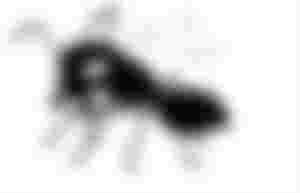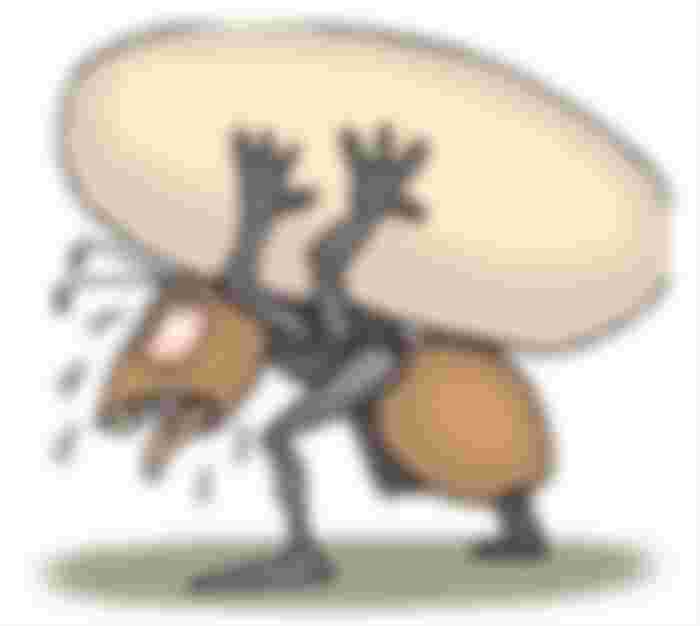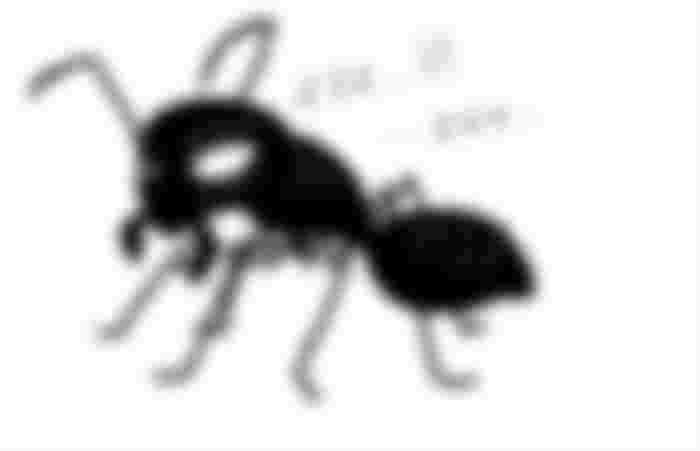We know that ants never sleep. But why don't they sleep?
Turns relentlessly all day, working hard to break bones. I will not sleep a little so what happens!

What is sleep?
As a child, I read in the sociology book, "The temporary absence of the soul is sleep, and the permanent absence is death." I know how the word is spiritual type.
Sleep is a state of deep rest where the body and mind are virtually inactive. Although the brain seems to be ineffective due to the surrounding conditions, it regulates itself during sleep.
Why do we sleep?
Every day a lot of memories are stored in the brain which include necessary-unnecessary or transient-long lasting. These memories need to be sorted and verified.
Lots of biochemical reactions take place inside the body all the time. To fight the disease, the nerve cells that work all day also need rest.
The above activities can only happen in a good way when we give the body a complete rest. And that's why we sleep.
There are more than 7 million animal species in the world. Different species also differ in the type of sleep.
Do ants sleep?
First of all, two things about ant eyes. They have two capital axes and three straight axes. And neither of these two types of eyes has eyelids.
Sleep does not mean closing your eyes. We either have the eyelids closed. Those who do not have eyes, then they will not sleep? Ants also sleep, but their sleep is not exactly like ours. Here we can compare sleep to deep rest. But research has been done on ants sleep.

Ants live in holes. So it doesn't seem to have much effect on their sleep day and night.
The colony was formed around the queen ant. There is a big difference between the queen and the worker ants in terms of sleep.
In 1983, James and Cottell mentioned in a research paper that ants go into a state of deep rest, and that this rest occurs in a series of 24 hours. When some ants rest, other ants take full responsibility for their habitat. And the rest of the ant's mandible and antennae's performance during rest is much less than normal. That is why this phase is called deep rest phase.
In 1986, Basing and McCluskey used data on the functioning of the small brains of ants to indicate that ants were in a state of deep rest.
Debbie Cassell, Sky Brown, Devon Swick and George Yanev - a group of researchers who published a study on ants' sleep in 2009. They said that different species of ants sleep differently. They gave detailed information about red ants.
Just as humans sleep 8/9 hours at a time, ants do not sleep that way. Their sleep is divided into small episodes.
Worker ants sleep about 250 times in 24 hours. And each time they sleep less than 1 minute. In all, a worker ant can sleep for about four and a half hours in 24 hours. They never sleep all together, at least 80% are awake. When some ants go to rest, a sufficient number of ants stay awake for defense or work.

Queen ants, on the other hand, can be said to be a little lazy. Although he sleeps 90 times in 24 hours, it takes about 6 minutes each time. In all, the queen ant sleeps for about 9 hours in 24 hours.
Then it was seen that the queen ant gave us the same amount of sleep but not continuously. The funny thing is that if there are more than one queen ant in a colony, they sleep together while sleeping, somehow intertwining. But when they wake up, they fall apart.
Debbie Cassell noticed that the queen ants sometimes opened their mouths and slept with the antenna on the side. Many times they sleep with their mouths closed and their antennae upright, and this is their deep resting state.
The ants that have just woken up are moving around for a while, but they are very similar to us.
If you have a brain, you will need sleep. That sleep pattern is different for each animal. Arthropods, known as insects, do not have eyelids. On the other hand, even the most advanced animal fish does not have eyelids. So in the conventional sense of sleep, as we see, these animals will not be seen.
The ant's brain contains approximately 250,000 neurons, much less than ours. Their brain structure is also quite simple. So the issue of sleep is completely different with us.
You may be surprised to learn that jellyfish have no brains. Even then, they go into deep rest for a while every day, which is compared to sleep.
-------------------------------
@TheRandomRewarder Hope you enjoy reading this article..
Thanks to everyone who read my article .




